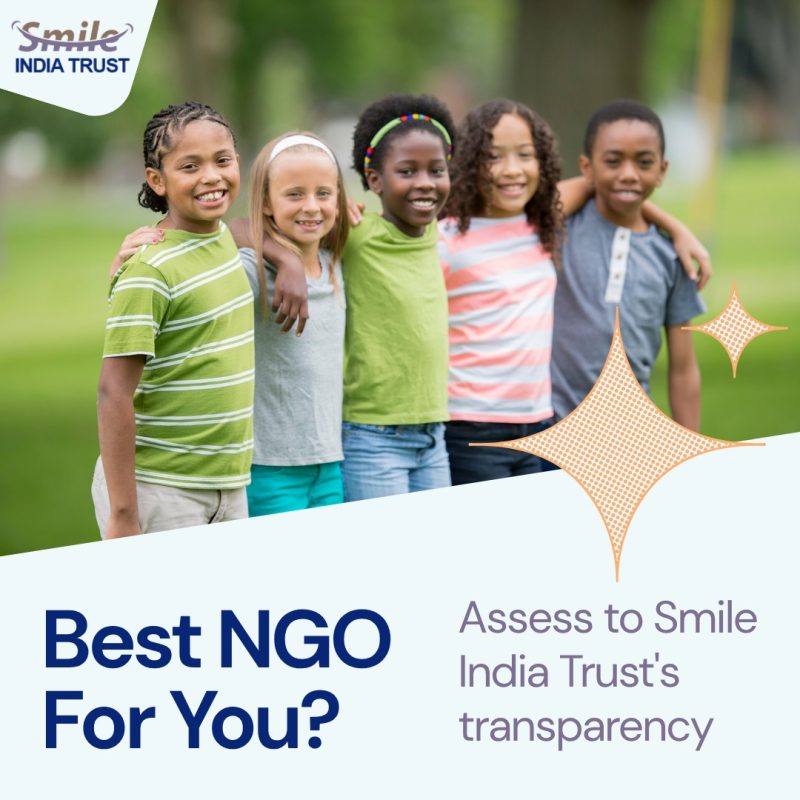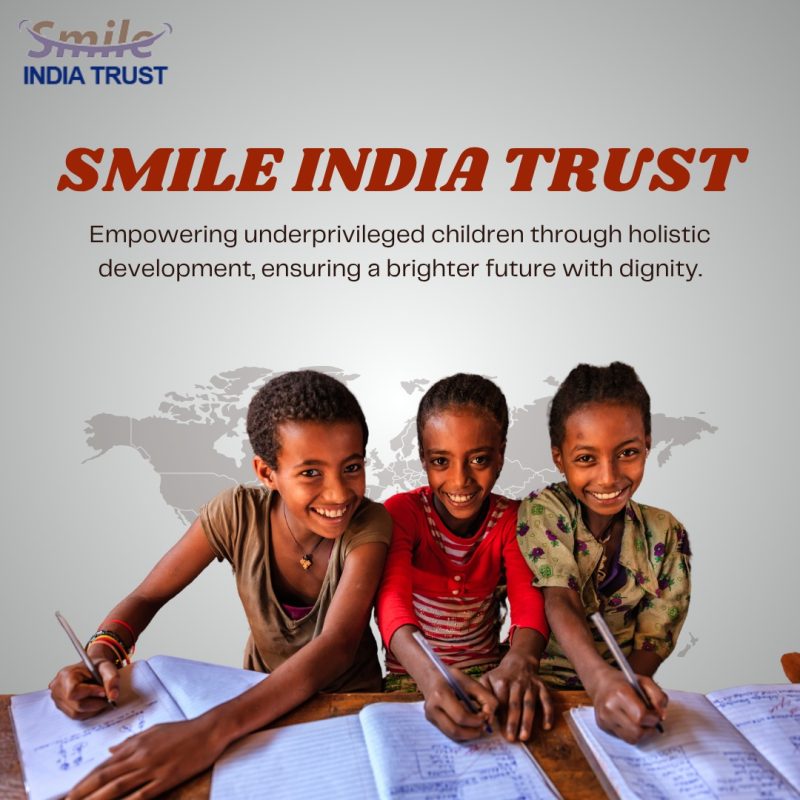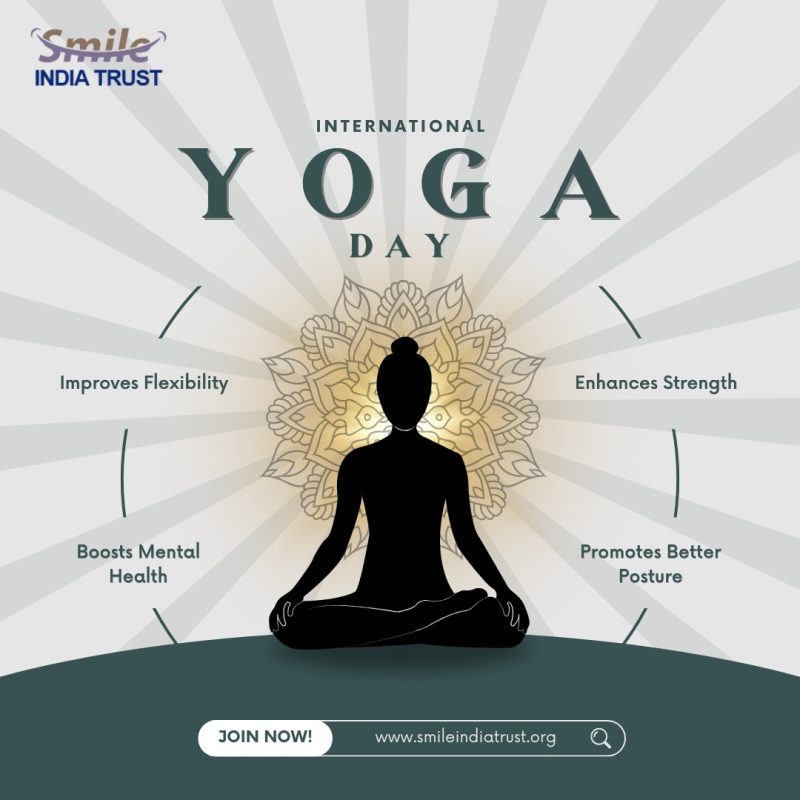In July, Smile India Trust glowed with kindness. The Meal of Happiness Program served warm meals, spreading joy. The Computer Literacy Program empowered minds, while Project Garima restored dignity with fresh clothes. Counselling Sessions and Educational Programs inspired growth, Virtual Sessions bridged distances, and the Cleanliness Program beautified spaces. OPD Support offered healing, with discharge […]
Finding the best NGO for you to support can feel overwhelming, but it’s all about making the right choice for a genuine impact. Numerous organizations tackle a wide range of issues, from poverty alleviation to environmental sustainability. When searching for the perfect fit, take the time to look into their mission, how we manage funds, […]
Smile India Trust is a passionate non-profit organization dedicated to making education accessible to everyone in India. Our NGO services understand that education is vital for personal growth and community development. That’s why we work hard to close the educational gaps found in underprivileged areas. Through various programs, we ensure that children have access to […]
Smile Trust India stands as a beacon of hope for countless underprivileged children across India. Our NGO dedicates itself to fostering holistic development, ensuring these individuals have the opportunity to build brighter futures filled with dignity and promise. Through a comprehensive approach encompassing education, healthcare, nutrition, and emotional well-being, Smile Trust India empowers children to […]
In June, Smile India Trust sparkled with compassion. The Meal of Happiness Program nourished hearts with warm meals, while Project Garima clothed families in dignity. Counselling Sessions and Educational Programs empowered minds, Virtual Sessions connected communities, and the Cleanliness Program uplifted spaces. OPD Support provided healing, guided by clear discharge summaries. Transparent payment details and […]
International Yoga Day, celebrated every June 21st, has really taken off around the world, focusing on our physical, mental, and spiritual health. For Smile India Trust, this day is especially meaningful. It’s a chance for further our mission of spreading happiness and wellness. By encouraging mindful practices, we help people improve their lives, building a […]
Founded in 2017, Smile India Trust has quickly made a name for itself in the realm of social impact across India. Our incredible NGO focuses on uplifting marginalized communities, especially street and slum children, as well as vulnerable women and those living in poverty. Our holistic approach to development has earned them a well-deserved spot […]
Child Labour is a heartbreaking issue that takes away the innocence of childhood and deprives countless kids of their basic rights. On World Day Against Child Labour, recognized every year on June 12th, we reaffirm our dedication to putting an end to this serious problem. Even with laws and international agreements in place, many children […]
June 7th is a day we should all pay attention to—it’s World Food Safety Day! This event really drives home how critical safe food practices are across the globe. In Smile India Trust, a non-profit that’s all about community health, we firmly believe that food safety isn’t just technical—it’s a basic human right. Unfortunately, unsafe […]
Every June 5th, World Environment Day rolls around, serving as a reminder of our shared duty to safeguard the planet. It’s a call to action that highlights the urgent need to tackle the environmental issues we face today. Our organisation, Smile India Trust, is stepping up to promote a healthy planet for both us and […]








